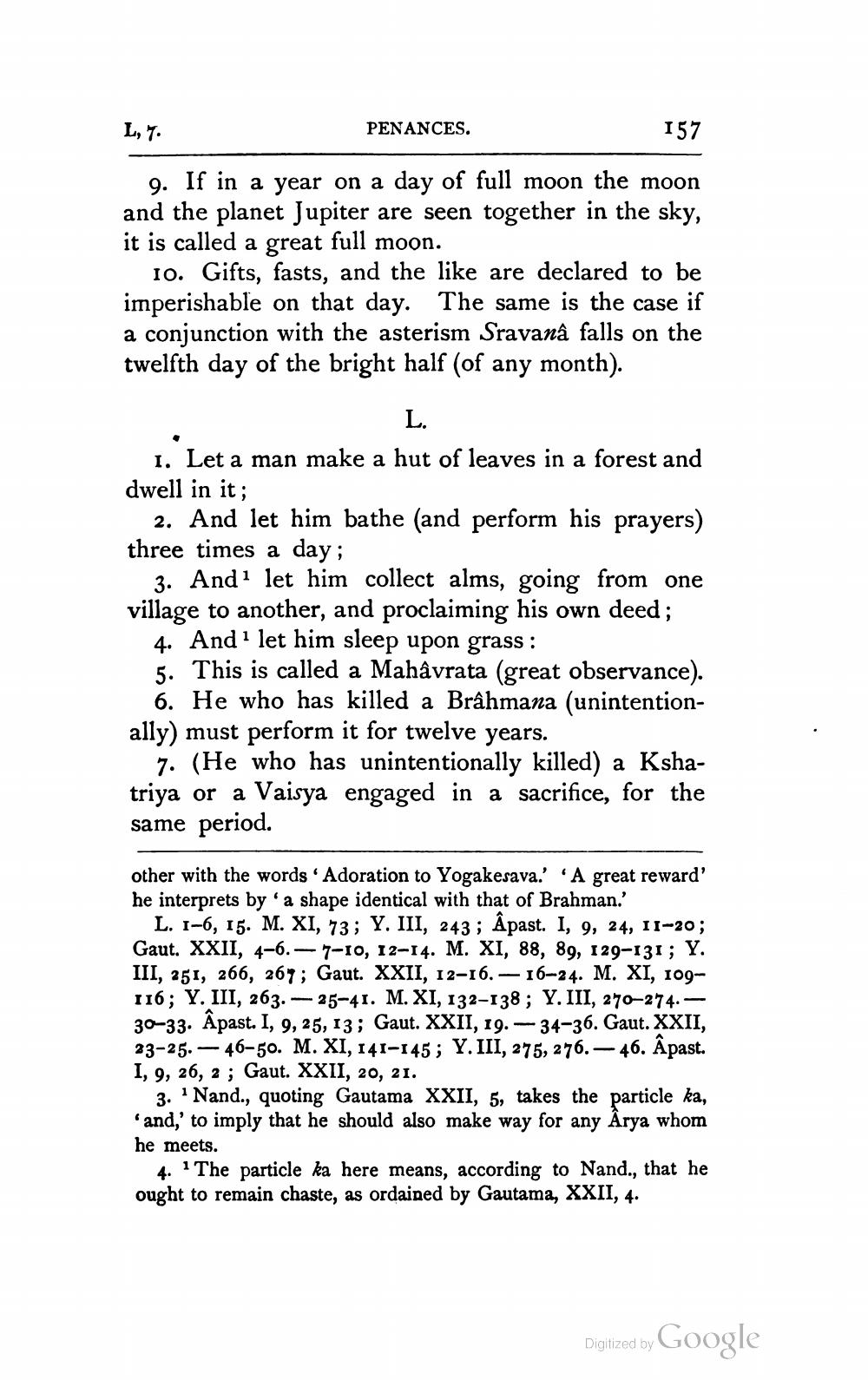________________
L, T.
PENANCES.
157
9. If in a year on a day of full moon the moon and the planet Jupiter are seen together in the sky, it is called a great full moon.
10. Gifts, fasts, and the like are declared to be imperishable on that day. The same is the case if a conjunction with the asterism Sravanâ falls on the twelfth day of the bright half (of any month).
L. 1. Let a man make a hut of leaves in a forest and dwell in it;
2. And let him bathe (and perform his prayers) three times a day;
3. And let him collect alms, going from one village to another, and proclaiming his own deed;
4. And 1 let him sleep upon grass : 5. This is called a Mahâvrata (great observance).
6. He who has killed a Brâhmana (unintentionally) must perform it for twelve years.
7. (He who has unintentionally killed) a Kshatriya or a Vaisya engaged in a sacrifice, for the same period.
other with the words. Adoration to Yogakesava.' A great reward' he interprets by a shape identical with that of Brahman.'
L. 1-6, 15. M. XI, 73 ; Y. III, 243 ; Âpast. I, 9, 24, 11-20; Gaut. XXII, 4-6. — 7-10, 12-14. M. XI, 88, 89, 129-131; Y. III, 251, 266, 267; Gaut. XXII, 12-16. — 16-24. M. XI, 109116; Y. III, 263. - 25-41. M. XI, 132–138; Y. III, 270-274. - 30-33. Âpast. I, 9, 25, 13; Gaut. XXII, 19. - 34-36. Gaut. XXII, 23-25. -46-50. M. XI, 141-145; Y.III, 275, 276.-46. Apast. I, 9, 26, 2; Gaut. XXII, 20, 21.
3. Nand., quoting Gautama XXII, 5, takes the particle ka, and,' to imply that he should also make way for any Arya whom he meets.
4. The particle ka here means, according to Nand., that he ought to remain chaste, as ordained by Gautama, XXII, 4.
Digitized by Google




